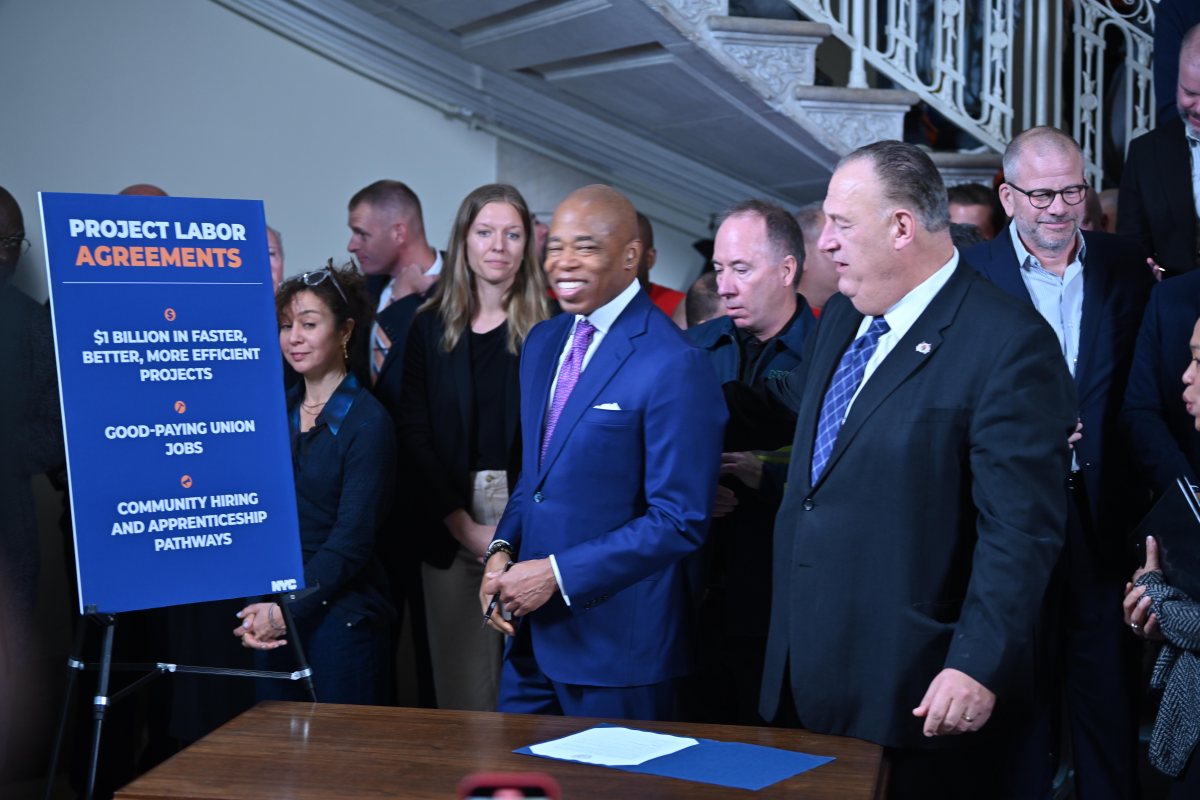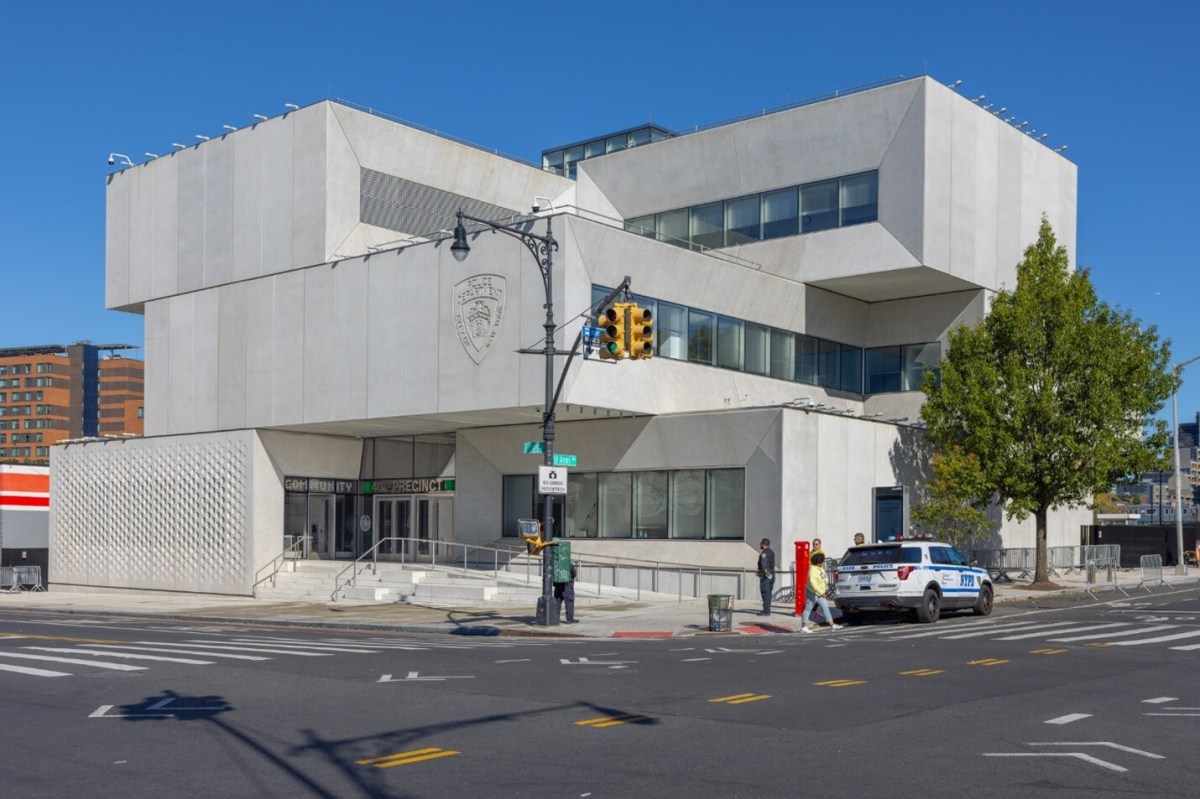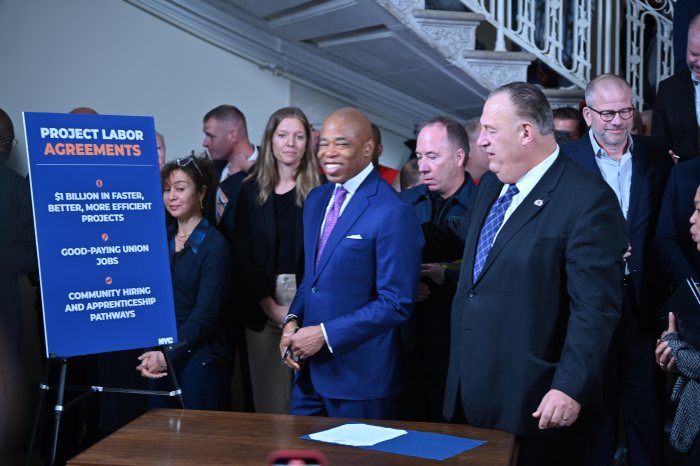When the Hard Rock Hotel opens in 2019, guests will be able to borrow Fender guitars and DJ equipment for in-room “impromptu jam sessions.”
The hotel will occupy a space on 48th Street, once known as Music Row — “A musical mecca and one-stop-shop for rock legends, such as Jimi Hendrix, Eric Clapton and the Stones,” the company explained at a news conference on Monday.
But the instrument stores that drew these legends to the area are now closed or have been relocated in the face of rising rents and a tough business environment.
The hotel will be the street’s nostalgic music monument, its “Sound of Your Stay music amenity program” giving the sense of being somewhere that has disappeared or moved.
The last music store — Alex’s Instruments, owned by Italian-Argentinean master accordion craftsman Alex Carozza, who once built a double-neck guitar (“the Alex Axe”) for Clapton — left in December, moving to a nondescript but bustling office building on West 54th Street once known as the “Violin Building,” which might be an indicator of the music business’s future in NYC.
Glory days
Carozza opened Alex Musical Instruments in 1972, no stranger to the accordion business — his father was an accordion maker in Argentina and Carozza worked in his family’s factory as a teenager. He came to New York to work for another accordion store, and eventually opened his own instrument business.
He was one of many on 48th Street, including Rudy’s, Manny’s and Sam Ash, competitors with deep relationships.
Rudy was a former employee; the businessmen then running Sam Ash were “not musicians,” Carozza says; and he remembers when the manager of Manny’s told him he wouldn’t last. It turned out there was plenty of business to go around, especially in guitars.
Pictures in Carozza’s new office memorialize the instrument maker outfitting George Benson and his band. There is a shot of Clapton playing the “Alex Axe,” another of Frank Sinatra. Carozza says that one day, Sinatra walked into the store and asked whether they could go someplace private to talk. Not recognizing him, Carozza declined. He ushered Sinatra into the back room when he realized his mistake.
Amateurs were welcome, for business reasons — Carozza says that of every 10 walk-ins who perused the stock, five came back to buy.
After renting his building for about 10 years, Carozza was given the chance to buy it. “Luckiest day of my life,” he says. He paid some $500,000. When he sold in 2008 (he rented again across the street for a few years after), he says he hadn’t been planning to give up the property. But he received an offer of $33 million. He sold.
Craftmanship lives on
Carozza doesn’t have the kind of walk-in business he used to — he’s on the sixth floor of a marquee-less office building — but in the accordion business, buyers are loyal. In an interview in his new digs, he says he has customers and repair orders from as far away as New Zealand.
Alex Instruments once employed 20 — now it’s down to a handful, Carozza says, gesturing around the small room he now occupies, crowded with accordions of all types. He says he doesn’t know much about the building he’s in, having only just arrived.
But in fact he’s surrounded by small music businesses — the New York Ukulele School, the Classical Saxophone Project, David Bonsey Fine Violins and the Violin Studio, among others, crowded into what residents say was once nicknamed “the Violin Building.”
Those small, specialized musical shops are still there, serving a dedicated audience of pros and wannabes in the triangle between Carnegie Hall, Lincoln Center and the Broadway music pits.
While this population remains attached to the particulars of fine craftsmanship, it’s easier than ever to make music with that ubiquitous instrument, the computer, which can call up guitars and violins and saxophones to be mixed and mingled at will — perhaps even by guests who call down to room service for DJ equipment at the Hard Rock Hotel, where guitars will only be borrowed for the novelty of it. Or hung up like trophies on the wall.
For his part, Carozza says the high costs for teachers and instruments could be leading to fewer musicians. He says he’s donated instruments and started schools over the years, but his true love is making the instruments, in particular accordions — “complete instruments,” he says, which can be whole orchestras when combined with bass and drums.
When they’re well-made, he says, accordions are “forever.”
This is amExpress, the conversation starter for New Yorkers. Subscribe at amny.com/amexpress.



































